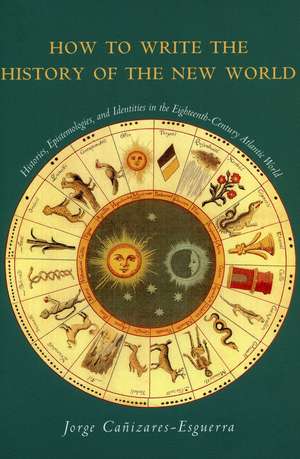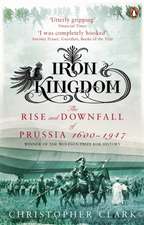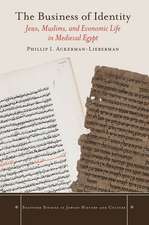How to Write the History of the New World: Histories, Epistemologies, and Identities in the Eighteenth-Century Atlantic World: Cultural Sitings
Autor Jorge Cañizares-Esguerraen Limba Engleză Paperback – 15 apr 2002
In the mid-eighteenth century, the French naturalist Buffon contended that the New World was in fact geologically new—that it had recently emerged from the waters—and that dangerous miasmas had caused all organic life on the continents to degenerate. In the “dispute of the New World” many historians, naturalists, and moral philosophers from Europe and the Americas (including Thomas Jefferson) sought either to confirm or refute Buffon’s views. This book maintains that the “dispute” was also a debate over historical authority: upon whose sources and facts should naturalists and historians reconstruct the history of the continent and its peoples?
The author traces the cultural processes that led early-modern intellectuals on both sides of the Atlantic to question primary sources that had long been considered authoritative: Mesoamerican codices, early colonial Spanish chronicles, and travel accounts. In the process, he demonstrates how the writings of these critics led to the rise of the genre of conjectural history. The book also adds to the literature on nation formation by exploring the creation of specific identities in Spain and Spanish America by means of particular historical narratives and institutions. Finally, it demonstrates that colonial intellectuals went beyond mirroring or contesting European ideas and put forth daring and original critiques of European epistemologies that resulted in substantially new historiographical concepts.
The author traces the cultural processes that led early-modern intellectuals on both sides of the Atlantic to question primary sources that had long been considered authoritative: Mesoamerican codices, early colonial Spanish chronicles, and travel accounts. In the process, he demonstrates how the writings of these critics led to the rise of the genre of conjectural history. The book also adds to the literature on nation formation by exploring the creation of specific identities in Spain and Spanish America by means of particular historical narratives and institutions. Finally, it demonstrates that colonial intellectuals went beyond mirroring or contesting European ideas and put forth daring and original critiques of European epistemologies that resulted in substantially new historiographical concepts.
Preț: 272.16 lei
Nou
Puncte Express: 408
Preț estimativ în valută:
52.08€ • 54.52$ • 43.09£
52.08€ • 54.52$ • 43.09£
Carte disponibilă
Livrare economică 15-29 martie
Preluare comenzi: 021 569.72.76
Specificații
ISBN-13: 9780804746939
ISBN-10: 0804746931
Pagini: 488
Dimensiuni: 152 x 229 x 30 mm
Greutate: 0.64 kg
Ediția:1
Editura: Stanford University Press
Colecția Stanford University Press
Seria Cultural Sitings
ISBN-10: 0804746931
Pagini: 488
Dimensiuni: 152 x 229 x 30 mm
Greutate: 0.64 kg
Ediția:1
Editura: Stanford University Press
Colecția Stanford University Press
Seria Cultural Sitings
Recenzii
"In view of the breakthrough represented by the achievements of this book, strikingly heterodox and impressively persuasive interpretations of the 'dispute of the New World,' it is of cardinal importance in several fields of history: Latin America, the Spanish monarchy, Enlightenment, historiography, and New World cultural encounters."—Felipe Fernández-Armesto, Oxford University
"Refreshes our understanding of the colonial past and of the origins of the independence movements in the New World. A masterpiece of scholarly ingenuity."—The Economist (Books of the Year)
"The year's best monograph: a startling excavation in Latin America's mental pre-history."—The Independent
"A model of scholarship. . . . Explains how Latin America began to form, before independence, in colonial minds. The author leads the reader into beguiling labyrinths: Boturini's lost library, Palenque's ruins, Enlightenment rivalries."—Times Literary Supplement
"This is an extraordinarily ambitious and illuminating book on the search for new historical narratives in eighteenth-century New Spain. It is a remarkable journey of discovery, a veritable history of historiography for the late colonial period."—William B. Taylor, University of California, Berkeley
"A profound, thoroughly researched, persuasively argued, seminal text about the nuances of history and its perception over 200 years ago, How to Write the History of the New World is very highly recommended reading for students of western hemispheric history and a core addition to academic reference collections."—The Bookwatch
"Canizares-Esguerra's study skillfully explains the epistemological origins of the dispute of the New World and rescues a vibrant Spanish-American intellectual world from undeserved obscurity. General collections and advanced undergraduates and above."—Choice
This is a work of prodigious learning, with potentially far-reaching implications for the intellectual history of the early modern Atlantic world. It creatively adapts recent themes in the histiography of early modern science to offer a new approach to the 'dispute of the New World.'"—Journal of Colonialism and Colonial History
"Canizares-Esguerra proves a provocative model to inspire future Atlantic intellectual histories, in which both Northern and Southern metropolitans and colonials (engaging, also, the documents and artifacts of native peoples) think and write not in provincial isolation, but in complex, trans-oceanic dialogue."—Journal of Colonialism and Colonial History
“There can be no doubt about the tremendous achievements of this book . . . .In an account that can only be described as magisterial for its impressive command of an enormous archive, the erudition of its philosophical scholarship, and the tour-de-force of its scope, Jorge Canizares-Esguerra’s book will be indispensable in our quest for a more global and comprehensive understanding of New World historiography, ‘the Enlightenment,’ and the making of modernity in the eighteenth-century Atlantic world.”—William and Mary Quartlery
"A profound, thoroughly researched, persuasively argued, seminal text about the nuances of history and its perception over 200 years ago, How to Write the History of the New World is very highly recommended reading for students of western hemispheric history and a core addition to academic reference collections."—The Bookwatch
"Canizares-Esguerra's study skillfully explains the epistemological origins of the dispute of the New World and rescues a vibrant Spanish-American intellectual world from undeserved obscurity. General collections and advanced undergraduates and above."—Choice
This is a work of prodigious learning, with potentially far-reaching implications for the intellectual history of the early modern Atlantic world. It creatively adapts recent themes in the histiography of early modern science to offer a new approach to the 'dispute of the New World.'"—Journal of Colonialism and Colonial History
"Canizares-Esguerra proves a provocative model to inspire future Atlantic intellectual histories, in which both Northern and Southern metropolitans and colonials (engaging, also, the documents and artifacts of native peoples) think and write not in provincial isolation, but in complex, trans-oceanic dialogue."—Journal of Colonialism and Colonial History
“There can be no doubt about the tremendous achievements of this book . . . .In an account that can only be described as magisterial for its impressive command of an enormous archive, the erudition of its philosophical scholarship, and the tour-de-force of its scope, Jorge Canizares-Esguerra’s book will be indispensable in our quest for a more global and comprehensive understanding of New World historiography, ‘the Enlightenment,’ and the making of modernity in the eighteenth-century Atlantic world.”—William and Mary Quartlery
Notă biografică
Jorge Cañizares-Esguerra is Assistant Professor of History at SUNY-Buffalo.
Textul de pe ultima copertă
“In view of the breakthrough represented by the achievements of this book, strikingly heterodox and impressively persuasive interpretations of the ‘dispute of the New World,’ it is of cardinal importance in several fields of history: Latin America, the Spanish monarchy, Enlightenment, historiography, and New World cultural encounters.”—Felipe Fernández-Armesto, Oxford University
“Refreshes our understanding of the colonial past and of the origins of the independence movements in the New World. A masterpiece of scholarly ingenuity.”—The Economist (Books of the Year)
“Refreshes our understanding of the colonial past and of the origins of the independence movements in the New World. A masterpiece of scholarly ingenuity.”—The Economist (Books of the Year)
Descriere
An Economist Book of the Year, 2001.
In the 18th century, a debate ensued over the French naturalist Buffon's contention that the New World was in fact geologically new. Historians, naturalists, and philosophers clashed over Buffon's view. This book maintains that the "dispute" was also a debate over historical authority: upon whose sources and facts should naturalists and historians reconstruct the history of the New World and its people. In addressing this question, the author offers a strikingly novel interpretation of the Enlightenment.
In the 18th century, a debate ensued over the French naturalist Buffon's contention that the New World was in fact geologically new. Historians, naturalists, and philosophers clashed over Buffon's view. This book maintains that the "dispute" was also a debate over historical authority: upon whose sources and facts should naturalists and historians reconstruct the history of the New World and its people. In addressing this question, the author offers a strikingly novel interpretation of the Enlightenment.

























